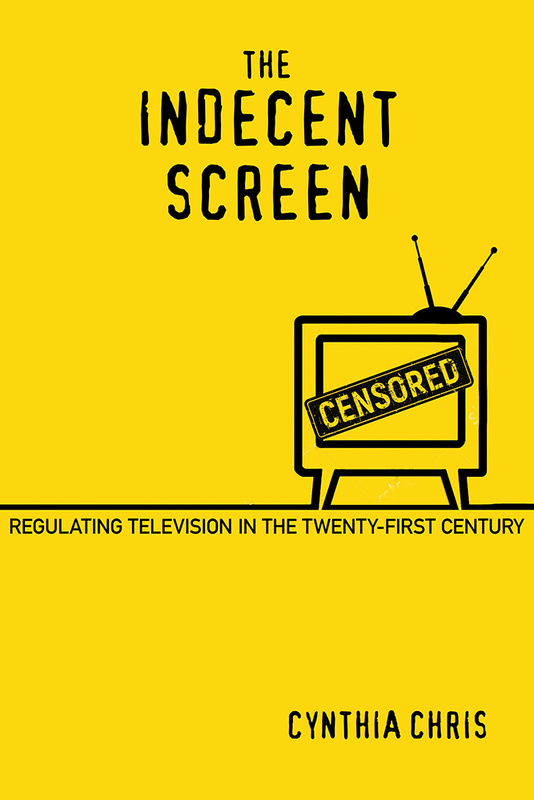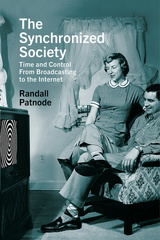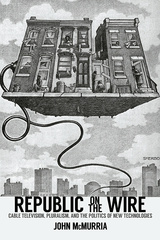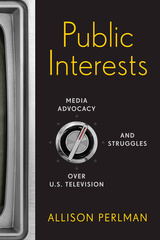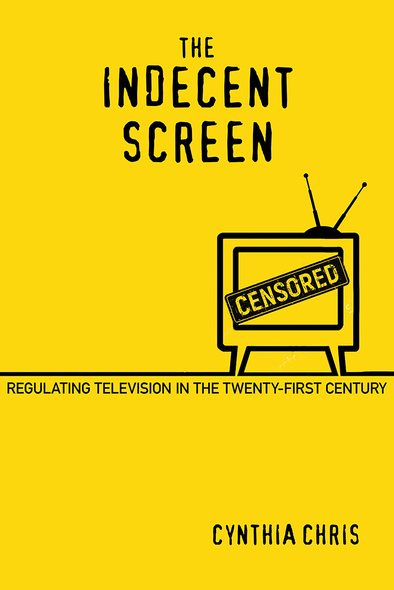
254 pages, 6 x 9
15 B&W
Paperback
Release Date:07 Jan 2019
ISBN:9780813594064
Hardcover
Release Date:07 Jan 2019
ISBN:9780813594071
The Indecent Screen
Regulating Television in the Twenty-First Century
Rutgers University Press
The Indecent Screen explores clashes over indecency in broadcast television among U.S.-based media advocates, television professionals, the Federal Communications Commission, and TV audiences. Cynthia Chris focuses on the decency debates during an approximately twenty-year period since the Telecommunications Act of 1996, which in many ways restructured the media environment. Simultaneously, ever increasing channel capacity, new forms of distribution, and time-shifting (in the form of streaming and on-demand viewing options) radically changed how, when, and what we watch. But instead of these innovations quelling concerns that TV networks were too often transmitting indecent material that was accessible to children, complaints about indecency skyrocketed soon after the turn of the century. Chris demonstrates that these clashes are significant battles over the role of family, the role of government, and the value of free speech in our lives, arguing that an uncensored media is so imperative to the public good that we can, and must, endure the occasional indecent screen.
The Indecent Screen may represent the literal ‘bookend’ on the history of broadcasting in relation to questions of choice in the market, public service and the airwaves, and decency. It could not be more timely and engaged with present debates.’
The Indecent Screen is an incisive look at the limits and limitations of contemporary media policy.
Instead of...innovations quelling concerns that TV networks were too often transmitting indecent material that was accessible to children, complaints about indecency skyrocketed soon after the turn of the century. Chris demonstrates that these clashes are significant battles over the role of family, the role of government, and the value of free speech in our lives, arguing that an uncensored media is so imperative to the public good that we can, and must, endure the occasional indecent screen.
Recommended.
Mass Communication and media law scholars will find this text most helpful.'
The Indecent Screen is a unique and necessary contribution to the field of censorship studies, and like broadcast television itself, justifies its place with enthralling detail and a powerful, complex history.
The Indecent Screen may represent the literal ‘bookend’ on the history of broadcasting in relation to questions of choice in the market, public service and the airwaves, and decency. It could not be more timely and engaged with present debates.’
The Indecent Screen is an incisive look at the limits and limitations of contemporary media policy.
Instead of...innovations quelling concerns that TV networks were too often transmitting indecent material that was accessible to children, complaints about indecency skyrocketed soon after the turn of the century. Chris demonstrates that these clashes are significant battles over the role of family, the role of government, and the value of free speech in our lives, arguing that an uncensored media is so imperative to the public good that we can, and must, endure the occasional indecent screen.
Recommended.
Mass Communication and media law scholars will find this text most helpful.'
The Indecent Screen is a unique and necessary contribution to the field of censorship studies, and like broadcast television itself, justifies its place with enthralling detail and a powerful, complex history.
CYNTHIA CHRIS is an associate professor and chair of the department of media culture at The College of Staten Island, City University of New York, and affiliated faculty in women’s and gender studies at the CUNY Graduate Center. She is the author or coeditor of Watching Wildlife, Cable Visions, and Media Authorship.
Contents
Chronology
List of Abbreviations
Introduction: What We Talk About When We Talk About Television and Indecency
1 A Brief History of Indecency in Media in the Twentieth Century
2 Targeting Television in the Twenty-First Century
3 Television: More or Less?
4 Bleeps and Other Obscenities
5 Who’s Afraid of Dick Smart? The Body Politic, Public Access, and the Punitive State
Conclusion: The Future of Indecency, and Why It Matters
Acknowledgments
Notes
Index
Chronology
List of Abbreviations
Introduction: What We Talk About When We Talk About Television and Indecency
1 A Brief History of Indecency in Media in the Twentieth Century
2 Targeting Television in the Twenty-First Century
3 Television: More or Less?
4 Bleeps and Other Obscenities
5 Who’s Afraid of Dick Smart? The Body Politic, Public Access, and the Punitive State
Conclusion: The Future of Indecency, and Why It Matters
Acknowledgments
Notes
Index

